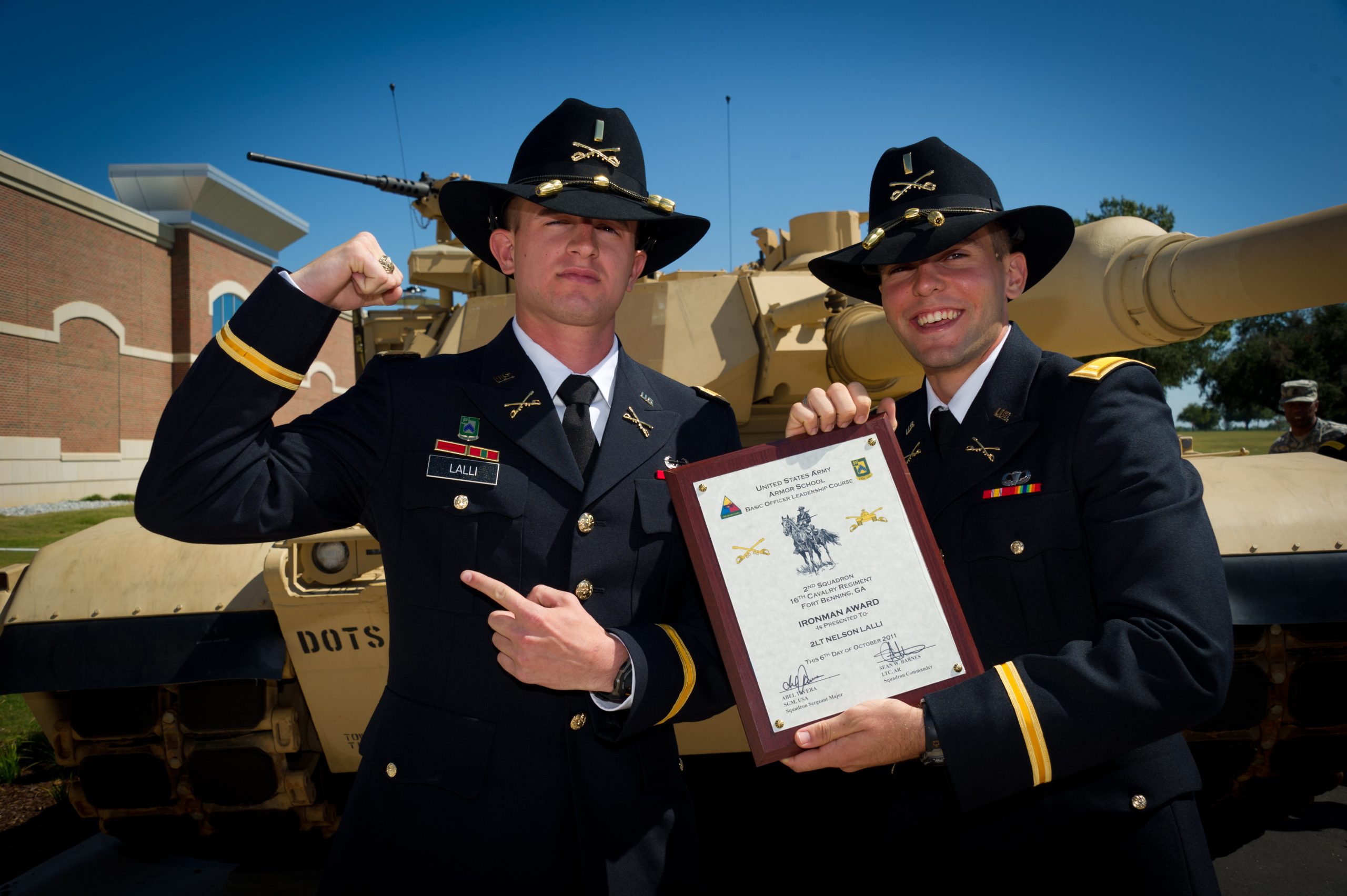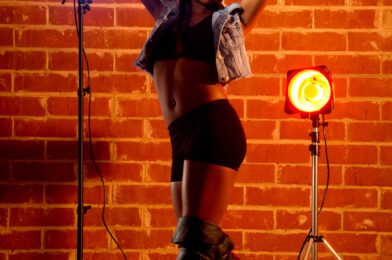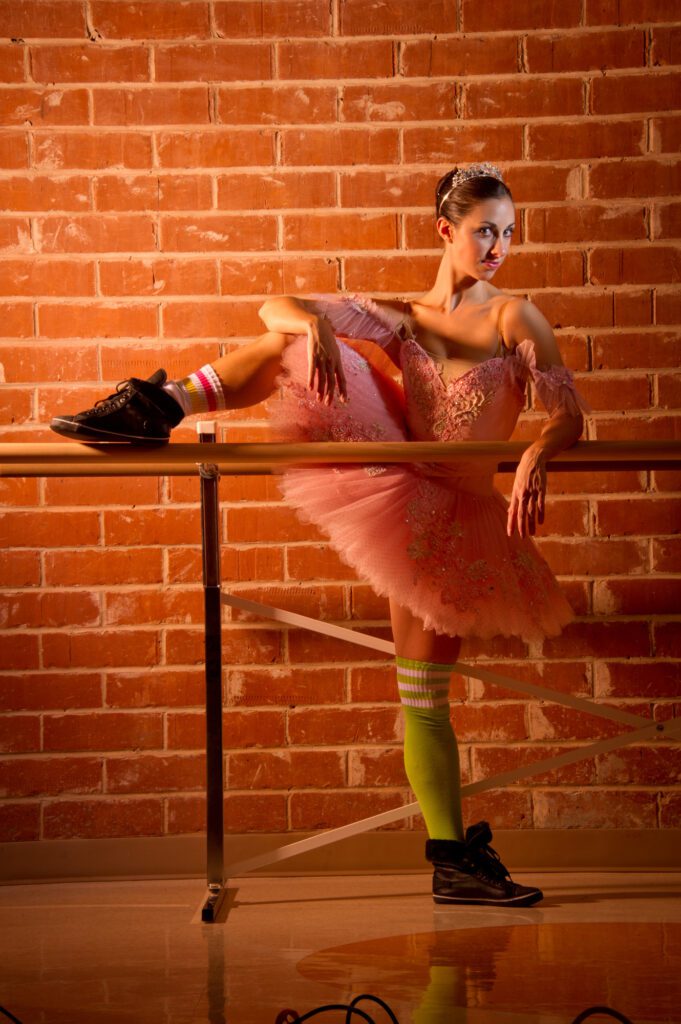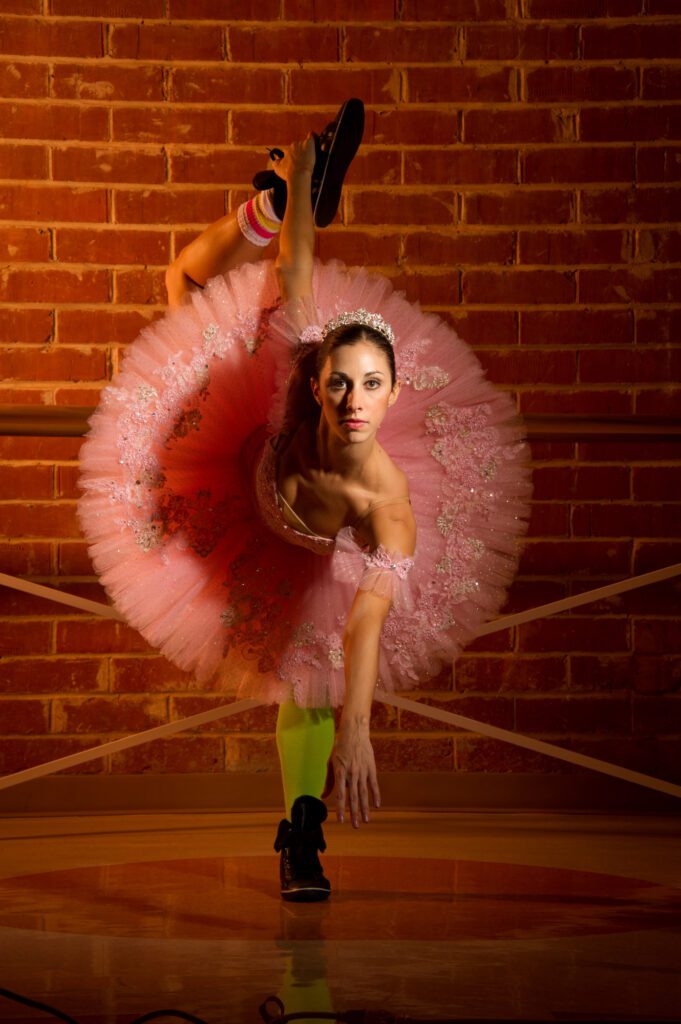 |
| This is our family at Nelson’s graduation from the US Army Armor School at Fort Benning, GA. |
The event: Our Son Graduation from The US Army Armor School at Fort Benning
I wanted to lead with the most common photo many of us take at a graduation. The family has a group photo with the graduate. I setup the photo before I got into it, so there are some things I did for this first photo that I recommend.
- Turn the flash on. In this photo you will quickly notice that had we not had the flash on you would have not seen our graduate’s face due to the shadow of the hat covering his face. If you look closely you will also see how on my daughter the shadows would have been worse around her eyes without the flash.
- I used the background to help our family remember a little about the event. Nelson is part of the Cavalry and the statue behind him helps capture that as well as his hat. In addition the building is the main building for the Armor Division and is called Maneuver Center for Excellence.
- Spacing of the group is done so you can see everyone’s face but we are not too far apart so that when you take the photo the faces are too small.
- The front to back is well used. We have the family closest to the camera and not right next to the statue or the building. This is a common mistake many make, because to then show the statue for example and the family you would back up and everone’s face would be like the size of a dot in the photo.
- Some angling to not be perfectly parallel to the building. This helps create depth to the photo.
 |
| Statue to help communicate this building is the home of the Cavalry. |
Detail shots help round out the coverage for the day. I took a moment and walked around the statue until I found an angle that helped to communicate the power of the statue. Shooting up really close made it where I was shooting almost straight up. This helped make the statue look powerful. Further away would have taken away the emotion of the power.
Look for details and then notice I had a purpose for the photo. I wanted communicate something. If you don’t know neither will your audience. Take a moment and think why you want the photo.
 |
| Capturing emotions helps to communicate |
I know that if you go through some of the intense training the military, then you most likely have developed some emotional connections to others on the team. This was not an event for me, this was our son’s graduation. I needed to show what this school meant to him. One of the ways to do this is to show people reacting to their friends.
 |
| While this was not my son, capturing others enjoying each other help to communicate the bonds formed in the school. |
 |
| When a subject looks into the camera they are looking at the audience. While I prefer unposed photos of subjects reacting to people and not the camera, sometimes their a moments where the subject engages the viewer. |
I notice people using their cameras probably more than most since I do this for a living. What I think this captures is how important an event is to a community. When I take a photo of others taking photos it shows that to these “photographers” this is important to them.
 |
| His role is to help update the social media pages for the unit and here he is getting some visuals for his next post. |
 |
| At attention for the national anthem. |
Patrick Lencioni, author of the New York Times best seller “The Five Dysfunctions of a Team” says ceremonies are important for people to move on in life. He even said that weddings are as much a funeral for those leaving single life as it is about the joining together.
After hearing Lencioni speak on this topic I realized how important the symbolic ceremony is to helping us with changes in our lives. The simple act of listening to the national anthem changes everything when you are at a military ceremony. It brings to your mind and heart the commitment of soldiers for our country.
 |
| Capturing not just a prayer, but for me I see the elected official and the military in this photo. |
In the middle of the two officers on stage was the Governor of the State of Georgia. Our elected officials are responsible for calling for war on a country. It highlights the importance of going to our polls to elect not just someone because they may believe in similar ideals that we want fostered. It means electing someone to office you trust will have the mind and heart to carefully consider what the right thing to do is when we ask these soldiers to lay their lives on the line.
 |
| I shot this as tight as I could and tried to use the American flag to help communicate this is an elected official. This is Governor Nathan Deal of Georgia giving the keynote address to the graduating class. |
 |
| Our son Nelson is being given the Iron Man Physical Fitness Award for having the highest Physical Training score in the graduating class. Nelson scored a 347. Presenting him the award is Governor Nathan Deal. |
The moment Nelson reached out to take his plaque and give a handshake to the Governor is the pinnacle moment in the ceremony for our family. “The Decisive Moment” was when I thought would be the moment that helped tell the story of the day. While this is what I thought prior to the days event as the story telling moment, I am not sure that some of the other photos don’t do just as good of a job.
If I were transmitting the photos to the Associated Press this would be one of the ones I transmitted, because it is something you would expect to be in the group of photos. While you want to be sure you have it, the editor may pick another photo that works.
A good reason not to use the photo is because it is what you expect–that’s right. Sometimes the reason you don’t use a photo is because it is cliche. Does this photo really make you want to know what is going on? I think not. Our family likes it, but you reading this article may be just as happy with another photo that is stronger in your opinion.
 |
| Get the 2nd fiddle as well. While the first handshake by the Governor was cool others should still be photographed. My son didn’t spend one moment with the Governor during his schooling, but he did spend time with this leader. Which one will mean more to the graduate? Get both and he will love them both. |
 |
| The standard establishing photo. |
Sometimes we get to focused and just get the photo of the handshake at a graduation and then one more photo of the family. Round out the story. Show where the event took place. It gives some context to the situation. The thing this photo does better than all the other photos is it gives an idea as to the size of the class and how many of the soldiers families came for the event.
 |
| This is the only graduation that the Governor has come to this year. It was newsworthy because he came. How do you tell the audience how important it was that the governor was there? Show the media coverage and you help communicate how big of a deal this is to the state of Georgia and the country by taking this photo. |
 |
| When you get the award for “Iron Man” you want your photo to show the “big guns.” Putting him in front of the tank works for the Armor Graduate. Notice the flash was used here. |
While you can have people pose for you, you can get some cool photos of when they are not posing for you but for someone else. One of the reasons these photos work is they are different. Look through all these photos again. Count how many of these photos you would always expect most people to get, then count those that are different. What did you notice?
 |
| When people are posing for others get those photos too, but from a different perspective. |
Okay if you are reading this you made it to the end. Did this give you some ideas for your next event? If so please take the time to let me know by writing below your comments. It is through your comments that others will get more out of this than just from my words alone.







